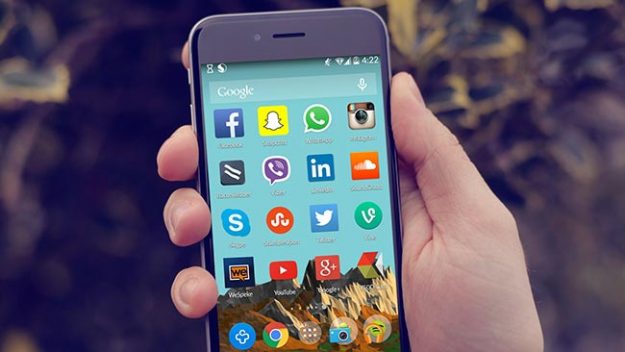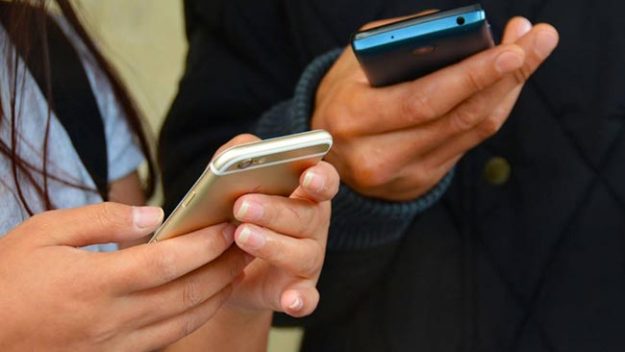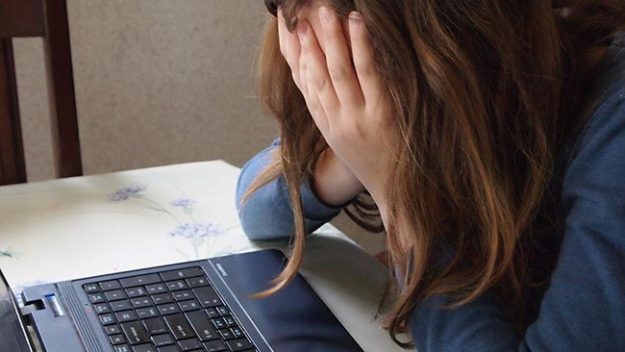From dating apps to social networking, people today are more connected than ever. For university students, is social media a help or hindrance?

SnapChat, Instagram, Facebook, WeChat, Tic Tok, Pinterest, WhatsApp and more. From reconnecting with old friends to finding potential life partners, social media has revolutionised the way people interact with each other.
Creating and developing a network of friends and acquaintances on various platforms has allowed people to reach outside of their hometowns, find old college and high school contacts, while at the same time allowing individuals to develop and market themselves or their products.
Millennials often get a bad rap for their feed-scrolling, photo-snapping, phone-addicting attitudes, and while some choose to embrace that stereotype, others fight to reverse it. Still others point to sites like LinkedIn as evidence that the young professionals today need to be connected in order to find jobs and internships.
An OfCom 2018 report noted that the internet (including social media) was the most popular form of news and media consumption among 18-25 year-olds. Sites like Twitter and Facebook offer individuals the ability to interact with a large amount of news in a relatively short amount of time, and all from the palm of one’s hand.
According to Statista.com, there were anywhere between 39 and 42 million people in the UK who were using some form of social media as of 2017, with a significant rise in the number of younger users, raising concern among parents about social media safety.
The increase of users has led to a range of issues, from concerns over cyberbullying to leaking of sensitive photos and information as well as any number of privacy concerns.
After the Cambridge Analytica and Facebook scandal that came to light during 2018, as well as the U.S. investigation to Russian meddling during the 2016 U.S. Presidential Elections, many people considered reducing or eliminating their social media consumption.
But in this world of interconnectivity, is it actually possible to eliminate social media from one’s life?

Pros of Social Media
Many university students rely on sites like Facebook and Twitter for events, course communications and more, while international students often find such sites an easy way to stay in contact with friends and family back home.
School-based social media gives students the chance to see specific university-based events and connect with fellow students interested in similar activities, and many messaging services allow students to interact with large numbers of people without running into messaging limits or data caps with their phone plans.
Networking sites like LinkedIn and Indeed offer people the ability to connect with job and internship opportunities, as well as mentors within their fields of interest. University students and recent graduates are able to search for jobs both in their hometowns as well as in areas that they want to live in, upload their CV’s and pinpoint specific skills they possess.
As news gradually shifts more onto the internet, social media sites allow people to access multiple different sources, granting them the ability to read news from other countries or alternative sources.
Youtube and Instagram allow young artists, photographers, makeup gurus and other talented entrepreneurs to develop and create a following dedicated to their interests. Many have even been able to jump-start a career as a YouTube entertainer.
Cons of Social Media
However, the prevalence of social media sites and apps is not always a bed of roses.
The World Health Organisation officially classified internet addiction as a legitimate concern in June 2018, stating, “Use of the Internet, computers, smartphones and other electronic devices has dramatically increased over recent decades, and this increase is associated not only with clear and tremendous benefits to the users, but also with documented cases of excessive use which often has negative health consequences.”
People searching for their next “like high” or viral video hit may go to more and more extremes, many of which often end up in injury or even death. The recent “Bird Box Challenge,” where individuals blindfolded themselves and then tried to do things like crossing a busy street or driving a car, ended up being banned from YouTube and other video platforms due to the dangers presented by the challenge.

Ditch the Label, an anti-cyberbullying charity cited a growing trend among children and young adults using sites like Facebook, Instagram and Snapchat experiencing instances of cyberbullying.
The Cyberbullying Research Centre based out of the U.S. noted an almost 30% increase in instances of cyberbullying from 2004-2016, and with the rise in smartphone ownership, the numbers are projected to rise.
What Can I Do?
Check out the informational video below for ways to reduce your social media dependence! Even if you’re not quite ready to completely quit Pinning or Snapping, there are still ways to stay safe while staying connected.
.embed-container { position: relative; padding-bottom: 56.25%; height: 0; overflow: hidden; max-width: 100%; } .embed-container iframe, .embed-container object, .embed-container embed { position: absolute; top: 0; left: 0; width: 100%; height: 100%; }
